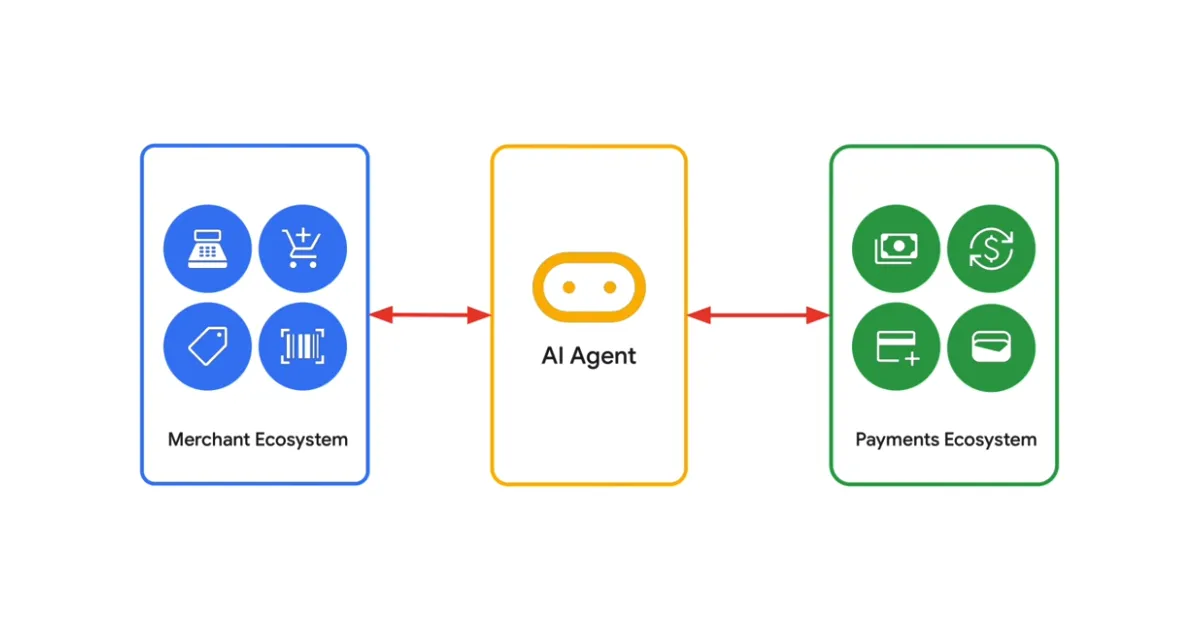Google unveils AP2, an open protocol for AI shopping

Google has unveiled a new open protocol designed to standardize how AI agents shop and make financial decisions on behalf of users. The Agent Payments Protocol (AP2), announced this week, is backed by more than 60 merchants and financial institutions — including industry heavyweights Mastercard, American Express, and PayPal.
The system aims to make AI-driven commerce interoperable across platforms, vendors, and payment networks, while also maintaining a secure and auditable trail of each transaction.
A Future of AI-to-AI Commerce
Google envisions a world where AI agents don’t just recommend purchases, but actively negotiate, bundle offers, and book services on behalf of consumers. For example, an agent tasked with planning a weekend trip could simultaneously secure flights, hotels, and activities within a set budget, executing multiple cryptographically signed transactions at once.
In another scenario, a simple shopping request — like “find a polka dot necktie” — could trigger agent-to-agent negotiation between a user’s assistant and retailers, with the final purchase requiring explicit user approval.
Intent and Cart Mandates: Guardrails for AI Shopping
To maintain accountability and prevent runaway transactions, AP2 introduces a two-step approval system:
- Intent Mandate: authorizes an AI agent to search and negotiate for a purchase (e.g., “I want a new bike under $500”).
- Cart Mandate: provides final approval before completing the transaction.
For cases where fully automated purchasing is desired, users can set more detailed intent mandates that include strict limits on price, timing, and scope. This layered system ensures a traceable record in case of fraud or disputes.
Crypto and Cross-Platform Interoperability
Google is also extending AP2 into the cryptocurrency ecosystem, partnering with Coinbase, Metamask, and the Ethereum Foundation. Together, they’ve built an integration for the x402 protocol, enabling AI-driven purchases directly from crypto wallets.
The company posted the full AP2 specification on GitHub, framing it as an open project. “We are committed to evolving this protocol in an open, collaborative process, including through standards bodies,” wrote Stavan Parikh and Rao Surapaneni, VPs at Google and Google Cloud.
Competition and Industry Momentum
Google is not alone in pursuing agent-driven commerce. Startups and payment providers are experimenting with their own systems — Perplexity has launched a Buy With Pro feature in its AI browser, while Stripe is building tools for agentic purchasing, albeit with narrower scope.
Still, Google’s broad coalition of supporters gives AP2 a head start. With backing from major card networks, online payment firms, and more than 60 merchants, the protocol has an immediate footprint in the financial ecosystem.
What’s Next?
The success of AP2 hinges on developer adoption and real-world implementation. If widely embraced, the protocol could serve as the backbone of a new era in digital commerce, where AI agents — rather than users — drive the bulk of online transactions.
As commerce becomes increasingly autonomous, AP2 may define the rules of engagement between buyers, sellers, and the AI intermediaries acting on their behalf.





